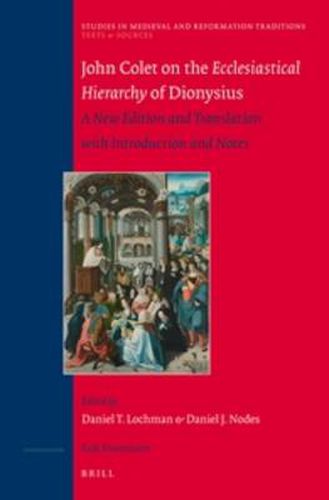Readings Newsletter
Become a Readings Member to make your shopping experience even easier.
Sign in or sign up for free!
You’re not far away from qualifying for FREE standard shipping within Australia
You’ve qualified for FREE standard shipping within Australia
The cart is loading…






The commentary of John Colet (1467-1519) on Dionysius the Areopagite’s Ecclesiastical Hierarchy adapts a work widely neglected by medieval theologians to the early sixteenth century. Dionysius’s apostolic model allowed Colet to set ecclesiastical corruption against the ideas for re-forming the mind as well as the church. The commentary reveals Colet’s fascination with the Kabbalah and re-emergent Galenism, but it subordinates all to harmonizing Dionysius and his supposed teacher, Paul. This first new edition in almost 150 years and first edition of the complete manuscript is edited critically, translated expertly, and provided with an apparatus that advances historical, theological, and rhetorical contexts. It resituates study of Colet by identifying a coherent center for his theology and agenda for reform in Tudor England.
$9.00 standard shipping within Australia
FREE standard shipping within Australia for orders over $100.00
Express & International shipping calculated at checkout
The commentary of John Colet (1467-1519) on Dionysius the Areopagite’s Ecclesiastical Hierarchy adapts a work widely neglected by medieval theologians to the early sixteenth century. Dionysius’s apostolic model allowed Colet to set ecclesiastical corruption against the ideas for re-forming the mind as well as the church. The commentary reveals Colet’s fascination with the Kabbalah and re-emergent Galenism, but it subordinates all to harmonizing Dionysius and his supposed teacher, Paul. This first new edition in almost 150 years and first edition of the complete manuscript is edited critically, translated expertly, and provided with an apparatus that advances historical, theological, and rhetorical contexts. It resituates study of Colet by identifying a coherent center for his theology and agenda for reform in Tudor England.